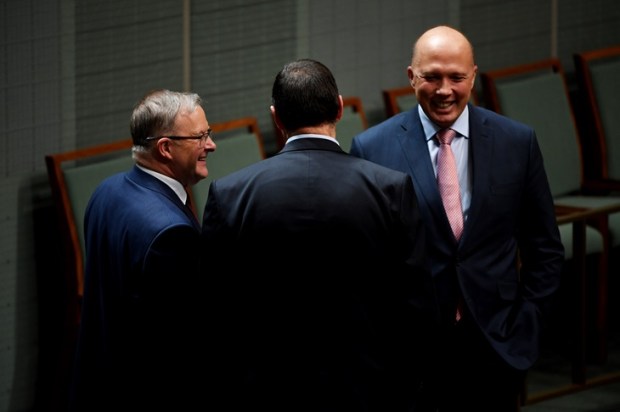I was recently cancelled by a long-term friend for having the temerity to support the State of Israel. The friend, let’s call him Bob, has relatively recently become a member of the Greens and is active in door-knocking and campaigning. Bob, a retired academic in the humanities, cloaks his prejudices in academic garb, which unfortunately also mirrors the characteristics of a cult.
The final straw for Bob came after a recent incident reported by The Guardian, involving Israeli military actions in Gaza. Bob’s email to me was blunt and accusatory, questioning how I could continue to defend Israel in light of the reported atrocities.
In response, I tried to clarify my stance, expressing my distress about casualties on both sides of the conflict and emphasising that my support for Israel did not equate to blind endorsement of its government’s actions. I also highlighted the historical context of Israel’s creation and the complex geopolitical realities that inform my views.
Bob’s final response was even more severe. He accused me of lacking basic humanity, arguing that my lack of shock or grief over the specific incident showed a deep-seated inability to empathise with the victims. He concluded that he could no longer continue our friendship, branding my views as inhumane.
Bob wrote
‘You clearly do not feel anything for the victims of these munitions, either because you lack the capacity for human empathy, or because in your Huntingtonian universe you do not feel empathy for ‘other’ groups, such as Muslims. Either way, I cannot find it in my heart to continue as a friend of someone so lacking in basic humanity.’
This level of personal attack, equating my disagreement with a lack of humanity, was a shocking end to a long friendship.
In an unsent reply, I articulated my disappointment:
‘So after 20 years or so of knowing me, you come to the conclusion after one email that I’m inhumane. Just because I hold a different view on Israel. That’s more of a problem for you, Bob, than for me. You have chosen to terminate our friendship, not me.’
Bob’s view extends beyond foreign policy. In previous discussions, he has labelled Australian political figures like Tony Abbott and Peter Dutton as ‘war criminals’. This extreme language is indicative of the Greens’ tendency to demonise those who do not conform to their ideological standards. It’s a dangerous path that stifles dialogue and fosters division.
In an earlier email, Bob tried to clarify his stance, stating: ‘I did not at any point mean to call YOU a war criminal, though I do think that people like Dutton, Littleproud, and Abbott (perhaps Abbott above all) deserve that title.’ He accused me of treating climate change as a set of ‘cute debating points’ and reiterated his belief that those who deny or delay action on climate change are committing crimes against humanity.
Bob continued, comparing nuclear power to outdated technology: ‘I can see that nuclear power fascinates you as a technology. But I fear that it is like steam trains – a very cool technology whose time, sadly, has passed.’ He dismissed nuclear energy as a viable option for Australia’s future, arguing that renewable energy solutions are more effective and cost-efficient.
Bob’s fervent belief in the Greens’ policies, and his disdain for those who oppose them, reflects the cult-like behaviour of the party. The Greens exhibit an unwavering adherence to a particular ideology, demanding absolute agreement from their members and supporters. Dissent or differing opinions are not merely debated; they are castigated. This intolerance for differing viewpoints is a hallmark of cult behaviour, where the collective’s ideology supersedes personal relationships and individual critical thinking. Adherents are told to shed themselves of external influences (such as me) who might challenge their beliefs.
This rigidity resembles zealotry. Adam Bandt, the leader of the Greens, often appears as a modern-day Girolamo Savonarola or Maximilien Robespierre, figures who brook no dissent and seek power to impose their ideology. If the Greens were to gain power, it’s plausible they would act similarly to Savonarola or Robespierre, enforcing their views without tolerance for opposition and destroying the fabric of our wonderful country in the process.
My stance on Israel is informed by a complex understanding of historical and geopolitical realities, rather than blind allegiance. I believe in Israel’s right to defend itself, while also acknowledging the suffering on both sides of the conflict. However, such a nuanced view is often unwelcome in discussions with those who see the world in black and white terms.
Whatever criticism one may have for Israel, the facts remain that Hamas broke an existing ceasefire agreement and committed atrocities within Israel’s 1948 borders. Israel, in its response, and perhaps more than other countries, keeps its sorties within international law and investigates and takes action against any wrongdoings by its troops. The war would end if Hamas surrendered and released the hostages.
The incident with Bob is a microcosm of a larger issue within political discourse today. The Greens, like many other ideological groups, often reject open dialogue in favour of rigid orthodoxy. This rejection of discourse not only alienates potential allies but also stifles the possibility of finding common ground. Let’s not forget that the Greens were responsible for the rejection of the then Labor Government’s Carbon Pollution Reduction Scheme because it did not go far enough.
The biggest problem with having ideological positions on what are essentially policy issues is that they might be wrong. Policies need to be evaluated on their effectiveness and cost, and no policy position should be beyond debate. However, the Greens’ approach often prevents such critical evaluation.
Friendships should be able to withstand political differences, but when ideological rigidity takes precedence, relationships suffer. My hope is that we can move towards a more inclusive and open political environment, where differing opinions are met with discussion rather than disdain. The Greens, if they wish to be truly progressive, must embrace a culture of open dialogue and mutual respect and learn to compromise.
As a supporter of free speech, I don’t want the Greens cancelled. Their pernicious views should be widely known so they can be countered by reasoned argument. After all, anti-Israel views are allowed in Israel, for example, when a former Arab Knesset member allegedly expressed support for a terrorist organisation, the Israeli Supreme Court concluded that while the posts were an abomination, the individual was protected by their right to freedom of speech.
I remain open to re-engaging with Bob, or anyone else, whenever there is a willingness to engage in thoughtful, respectful dialogue rather than dogmatic condemnation. As for the Greens, I just hope that Labor and Coalition voters put them last. They are, in my view, extremists, a threat to our liberty and economic security, and do not deserve to sit in our Parliament. Let them instead articulate their hatreds and ideology on a podium in Hyde Park rather than in Parliament House.

























